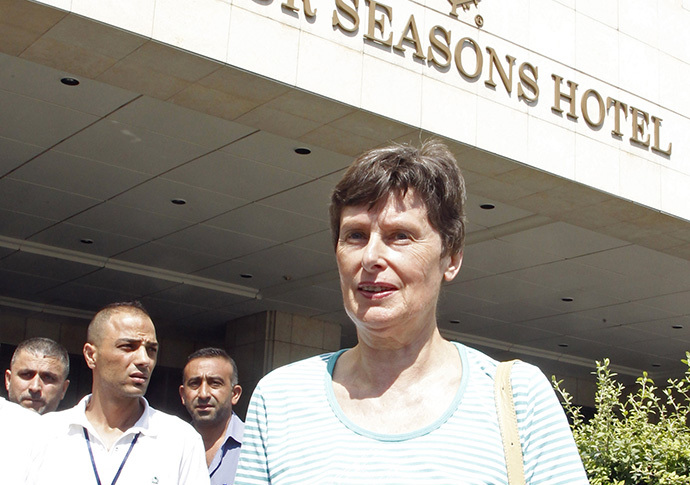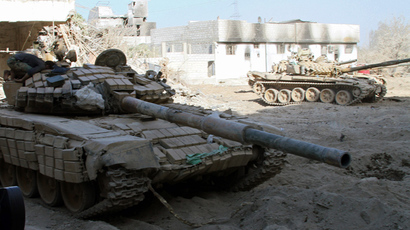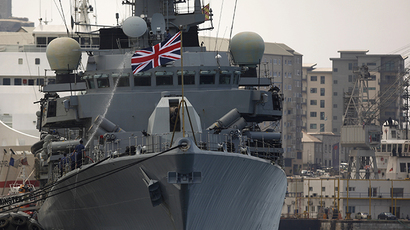UN inspectors visit site of alleged Syria chemical attack despite sniper fire
A UN inspection team has returned to a hotel in Damascus after taking samples from the site of Wednesday’s alleged chemical attack in an eastern suburb, despite a sniper assault on the mission’s vehicle.
Just in the beginning of their journey, the UN team was forced to
return to the government checkpoint to replace their car, which
“was deliberately shot at multiple times by unidentified
snipers in the buffer zone area," the spokesman for the UN
secretary-general, Martin Nesirky, said.
Despite earlier reports that the mission would be suspended, the
team continued with their investigation.
"They visited two hospitals, they interviewed witnesses, survivors and doctors, they also collected some samples," UN Secretary-General Ban Ki-moon said adding the investigation will be continued. Inspectors were reportedly satisfied with their first day of work on Monday.
The United Nations assured that it was still possible for
the team of experts to gather necessary evidence despite the time
elapsed since the alleged attack.
Ban Ki-moon added that the UN will complain to both the Syrian
government and opposition forces as a result of the attack.
"I have instructed Angela Kane to register a strong complaint
to the Syrian government and authorities of opposition forces so
that this will never happen and the safety and security of the
investigation teams will be secured from tomorrow," he said.
By this time, Syrian state TV had already issued a statement accusing rebel fighters of carrying out the attack, quoting sources in the Syrian Information Ministry. The Syrian opposition in their turn laid the blame with the government.
Monday morning's convoy included at least six cars and was
accompanied by a vehicle of security forces and an ambulance,
Reuters reported.
On Sunday, the Assad government had given the green light to the
mission to allow the investigators access to the suburb of
Ghouta. The site was the home "dozens" to 1,300 fatalities,
according to various sources.

Following the attack on the mission, Foreign Minister Sergey
Lavrov stated the incident "does not inspire optimism." He
remarked the shooting took place on the territory controlled by
the opposition forces and called for a proper investigation of
the alleged chemical attack in Ghouta.
“Officially Washington, London and Paris say they have incontrovertible evidence that the Syrian government is behind the chemical attack in Damascus, but they have not yet presented this evidence. Yet, they keep saying that the ‘red line’ has been crossed,” Lavrov said during an emergency press conference in Moscow.
Political leaders from the countries mentioned have all released strong condemnations over the weekend, seemingly in favor of military intervention.
"The Prime Minister and President Obama... have agreed that
there should be a strong response from the international
community, " said UK Foreign Secretary William Hague on
Monday in an interview with BBC Radio 4's Today program.
Questioned whether military intervention was a possible
route, he said "this may be the choice."
Lavrov stated that the fallout from the alleged chemical attack is aimed at sabotaging discussions in Geneva while the West tries to substitute inspectors' work with their own statements.
“Those involved with the incident wanted to sabotage the upcoming Geneva peace talks. Maybe that was the motivation of those who created this story. The opposition obviously does not want to negotiate peacefully,” Lavrov commented.














